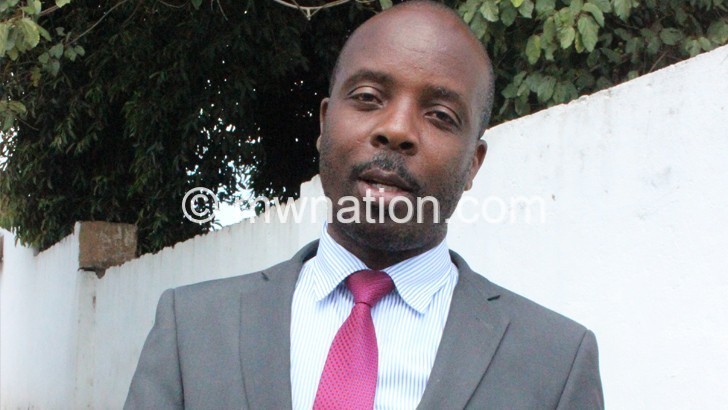Let’s respect human rights even during pandemic
The Covid-19 pandemic has affected many sectors and human rights activists have noted a rise in the number of peoples’ right violations in the name of enforcing health prevention measures. Weekend Nation sought the views of Centre for Human Rights Education Advice and Assistance (Chreaa) executive director of Victor Mhango on this and other Covid-19 rights-related issues. Excerpts:

Before we tackle Covid-19 violations, there are reports of continued torture in police cells. Why is the police failing to reform?
Malawi Police have failed to fulfill the intended goals for police reform due to significant human rights issues such as torture, arbitrary arrests or, acts of corruption, lack of investigation and accountability for violence against women suspects in their custody.
They have failed to achieve the goals because we still have some crop of police officers who are resisting change basically because of the way they were recruited in the service.
What do you think needs to be done to address this problem?
The police can address the grey areas by working on their recruitment criteria and punishing all officers who are working to the contrary of the service to provide professional service in provision of public safety and protection of the rights of all persons in Malawi.
We have heard of a number of cases bordering on arbitrary arrests as police are enforcing Covid-19 restrictions. How is Chreaa moving to ensure rights of people are being respected?
Indeed, rampantly reported human rights abuse within the period include: police brutality, torture, inhumane and degrading treatment of citizens, arbitrary arrests and detention including denial of social distancing to suspects. We continue to offer legal representation in some cases as well as advocacy for both civilians and security officers.
With the resurgence of Covid-19 cases, priority of vaccination has been to prison officers and not inmates. What are the consequences of such a move?
This is unfortunate that prisoners are treated as second class citizens. This is contrary to the principle of equality that is underlined in our republican Constitution. Prisons were specifically identified as places of high risk of transmission for Covid-19.
During the first wave of the pandemic, prisons were included by the Ministry of Health as a priority group to receive the vaccine and it is surprising that up to now prisoners have completely been sidelined and only some prison officers have been given the second dose.
How does this kind of treatment stand in the face of international human rights statutes?
This is a clear case of discrimination where we exclude people to access the vaccine because they are prisoners. This has to be rectified immediately.
The prisoners should have been given a chance like anyone else. The prisoners can sue the government for clear discrimination in this case.
With the spiking of Covid-19 cases, how can authorities reduce the risk of transmission in our over-crowded prisons?
The Covid-19 pandemic presents an acute risk to an already overstretched and under-resourced prison system. Prison overcrowding is severe in Malawi and was declared unconstitutional by the High Court of Malawi, who found that the conditions amounted to “cruel, inhumane and degrading treatment.”
In its September 2019 report, the Prison Inspectorate of Malawi recorded the prisons being at 260 percent of their capacity, with 14 000 people incarcerated in prisons suitable for 5 000, making it one of 22 countries worldwide whose prisons operate at over 200 percent capacity.
The World Health Organisation has made clear that there is an urgent need to decongest the world’s prisons. Decongestion efforts must therefore be at the forefront of any policy response to the virus.
People in prisons everywhere face higher vulnerabilities as the virus can spread rapidly due to the high concentration of people in confined spaces and to the restricted access to hygiene and health care. This endangers the prison population as well as staff and surrounding communities.





